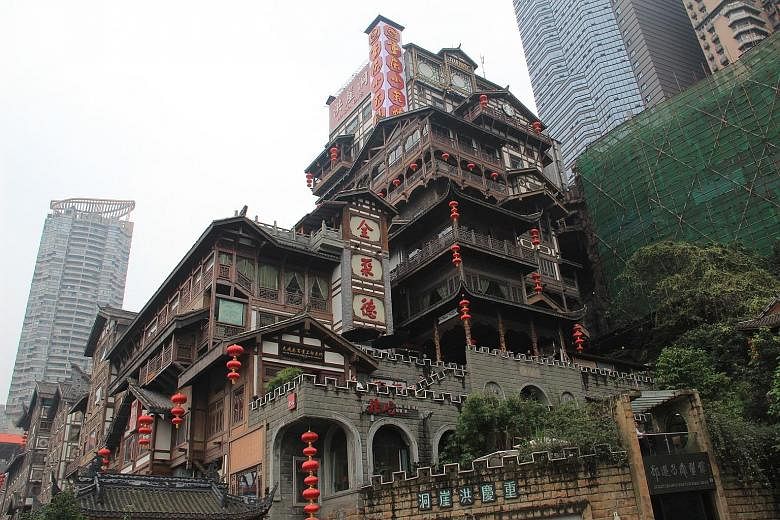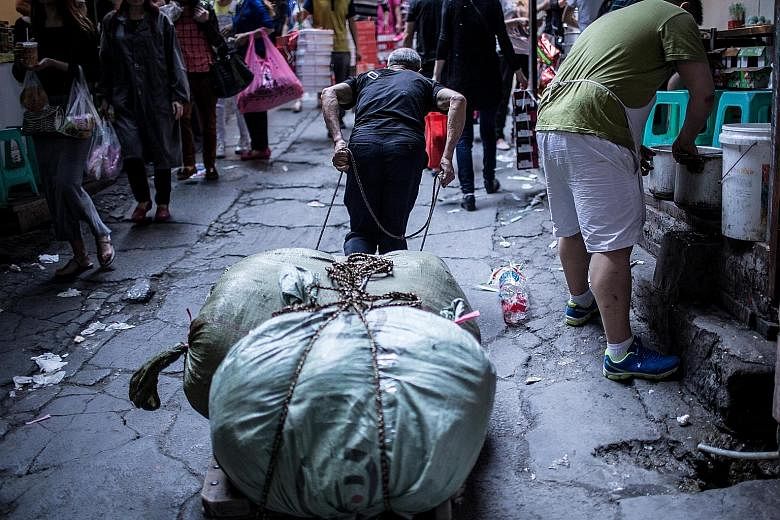The sacking of Bo Xilai as Chongqing party chief in 2012 sparked a political drama that gripped the nation for a year, ending with him being jailed for life for corruption.
But the saga did not end there for Chongqing.
"For about two years, investors, especially from outside, stayed away," said Chongqing Singapore Club president Amos Goh, whose club represents Singapore businesses. "They were unsure what the political instability would bring."
Bo's high-profile running of Chongqing was dominated by his "chang hong da hei" (sing red, hit black) campaign, referring to his crackdown on "black" mafia groups while encouraging people to sing "red" communist songs.
Yet he also used his contacts as China's former commerce minister to work deals for the city. These were in doubt after his downfall, local businessmen told The Straits Times.
But despite the hiccup and concerns over debts, Chongqing continued chalking up growth of 10 to 13 per cent after 2012, higher than the national average.
"The fact that Chongqing went through this episode and emerged stronger shows its resilience," said Mr Daniel Liao, who heads CDL China's Chongqing operations.
This is partly due to Bo's tough action on organised crime, which freed up sectors previously monopolised by local mafia.
Mayor and economic czar Huang Qifan was a steadying influence too. "He provided continuity amid the political uncertainty," said Chongqing native and marketing manager Hu Huimin, 31. Mr Huang first came to Chongqing in 2001 and was its key salesman for the third Sino-Singapore project.
Separately, the central government moved quickly to shore up confidence. Following Bo's ouster, 30 of China's biggest state-owned businesses signed contracts worth 350 billion yuan (S$76.5 billion) with Chongqing.
Top party leader Zhang Dejiang, who became Chongqing's interim chief, came out to express support for CapitaLand's $4 billion riverside Chao Tian Men development amid concerns over its future.
"After Zhang, the government made another political heavyweight, Sun Zhengcai, chief," noted local tech start-up founder Ma Zhaode. "It showed they attach importance to Chongqing."
Singaporean firms say they continued investing successfully here.
OCBC, which was the first Singapore-based bank to open here in 2009, said it recorded a compound annual growth rate (CAGR) of 58 per cent for onshore business from 2009 till last year. CAGR is the mean annual growth rate of an investment over a specified period of time longer than one year.
Mapletree Logistics has invested one billion yuan to build four logistics parks since deciding to enter Chongqing in 2013. "We believe the manufacturing economy of Chongqing and its strategic position as a gateway to China's west will underpin demand for modern logistics facilities," said Mapletree Logistics China CEO Goh Chye Boon.
Meanwhile, Mr Amos Goh, who arrived in Chongqing 12 years ago, said it never crossed his mind to leave. "We moved here because we believed in its potential. With lower operating and labour costs, Chongqing still has room for growth," he said.
Teo Cheng Wee


